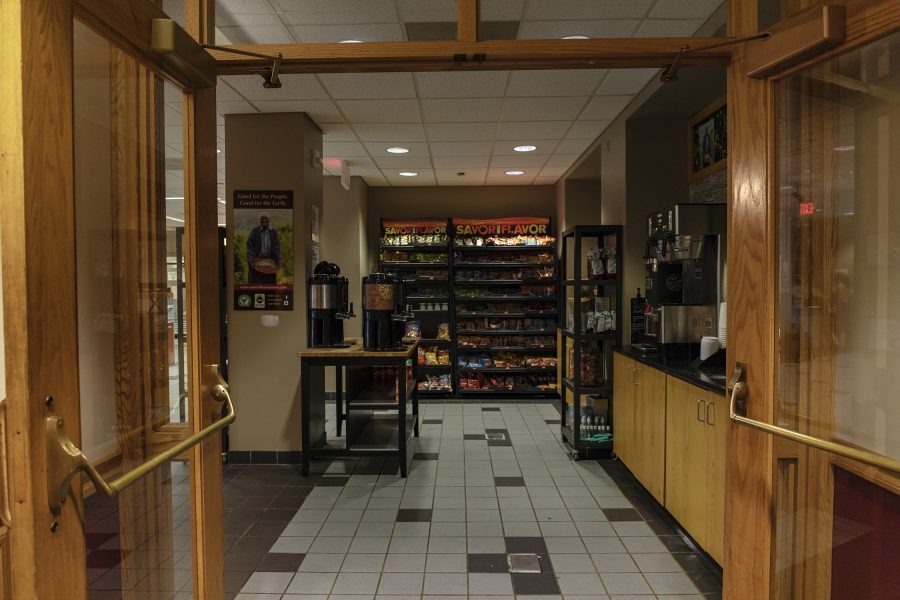Food fuels Lafayette, and recent menu changes have received positive feedback as several dining locations make an effort to be more dietarily accommodating and healthy.
According to Carolyn Karwick, Resident District Manager of Dining Services, “menus are planned to take advantage of the season for the freshest possible product available for purchase with menu changes daily.”
With this in mind, some new changes have been added.
“We have some new stations this year in Marquis Dining Hall. Every Wednesday, we have a power bowl station focusing on fresh whole grains and healthy ingredients in a build your own power bowl. And on any given day, we may have a mix of pancakes made to order or a specialty omelet,” Karwick wrote in an email.
Upper Farinon has added new selections in the Tacqueria. It has also kept favorites such as the Sundae Bar on Sundays as well as the made-to-order Omelet Station.
Lower Farinon “has a set menu with items changed on a semester-by-semester basis dependent upon the feedback we get from students, staff and faculty. This year in Lower, a “Daily Quesadilla Station” has been added as well as ‘The Impossible Burger’ to provide an flavorful vegetarian alternative to a hamburger,” Karwick wrote.
Students have had positive reactions to the new menu additions and considerations of other dietary needs.
“It’s a lot more vegan and vegetarian friendly,” Victoria Puglia ’21 said.
“[The menu is] dope. The new quesadillas are really good, especially the chipotle chicken one. The bacon egg and cheeseburger is also very good,” Troy Dixon ’19 added.
Additionally, in Lower, the sushi provider is now offering additional choices for sushi flavors and poke bowls, and more Korean dishes are expected soon.
Gilberts is similar to Lower in that it has a set menu that changes by semester.
“Recent changes reflect items supported by sales, an update to the smoothie selection, and the addition of a Mediterranean Plate featuring a selection of veggies and hummus,” Karwick wrote.
Skillman’s Cafe and Simon’s Deli will continue to offer their usual options.
Catherine Guerra ‘21 said that while she likes the menu choices “she would like if some of the options at Simon’s would be at Lower so some people won’t have to go out of their way.”
With the larger than expected first-year class, the dining halls have also had to accommodate for cooking for a larger group of students. The dining halls are adjusting to this by ordering “additional product with more prepped on a shift-by-shift basis to ensure that product quality never wavers. We cook less more often to [make sure] all students are taken care of,” Karwick wrote.
The dining team has also tried to increase consideration of dietary accommodations.
“We start with a simple set of ‘Kitchen Principles’ created by Bon Appétit to ensure the highest level of food quality…You can request many items cooked to order in our exhibition-style stations, and find foods that meet many personal nutritional goals, be it disease prevention, sports performance or more specific dietary needs,” Karwick wrote.
The result of following these principles, she added, is a menu meant to reflect the changing variety of healthy foods from basic fresh fruits, vegetables, whole grains, lean proteins and healthy fats, to exotic ethnic, vegetarian, and vegan dishes.
Karwick added that if students are unsure about something they can always talk to onsite chefs and managers who will be able to direct them to the best choices for their specific needs.
“In addition, the General Manager and Executive Chef can answer questions and help you get to know what foods work for you in the café. If choices are not available, staff will work with you to prepare items that meet your dietary needs,”
Aside from menu changes, dining services has both added and maintained sustainability and food waste initiatives. One such effort includes a partnership with the relatively new Food Recovery group for the last two and half years who ensure that “any product that can be donated, is picked up and delivered to one of our local shelters,” Karwick wrote.
In an effort to be environmentally conscious, dining venues will not provide straws at all at dining locations.
“Americans use 500 million plastic straws every day, very few of which are even recyclable. More than 90% of all plastics are not recycled,” According to the Bon Appetit Management Company website.




















































































































